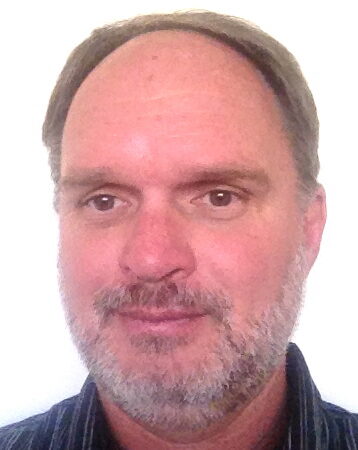
Q: What are your present positions and responsibilities in the corporate world and within the world fusion community?
Wade: Presently, I am employed by General Atomics as Vice President and Director of the DIII-D National Fusion Program, the largest magnetic fusion experiment in the United States with an annual budget of $75M supporting over 150 full-time research and support staff. My role is to create an environment that nurtures a vibrant research program that addresses key technical issues on the path to developing fusion energy as a reliable energy source. This includes near-term and long-term program planning, developing strong partnerships with international/national labs and universities, and overseeing operation of the DIII-D National Fusion Facility. I also serve on various committees within the world fusion community, including Chair of the KSTAR (Korea) Program Advisory Committee, an expert on the ITER Management Advisory Committee, and a member of the Nuclear Fusion journal Board of Editors.
Q: What do you like best about your present position?
Wade: The most enjoyable part of my job is interacting on a daily basis with some of the best scientists and engineers in the world. The incredibly clever ideas and insights that these individuals produce make it a pleasure to come to work every day just knowing that you will hear something different than you have ever heard before. The most rewarding aspect of my present position is working with national and international leaders (both technical and political) to strategize, develop, and implement a directed development plan that delivers fusion energy electricity production in the second half of this century, just when it will be needed to meet the ever-expanding worldwide energy needs. The technical challenges to do this are great but the need is greater, and it is a great honor to be in a position that I have impact in making fusion energy a reality.
Q: How did your graduate NE education at Georgia Tech prepare you for your subsequent responsibilities?
Wade: My graduate experience at Georgia Tech served as the underpinning for much of what I have accomplished in my career. The fusion energy curriculum provided me with a quality education in both plasma physics and fusion engineering. This broad education provided me with a perspective on fusion energy development that is distinct from others who have attended universities that have either a physics or engineering based curriculum. This broader perspective has served me well through the years, allowing me to discern subtle details from truly “show-stopping” ones. In addition, the research opportunities made available to me through first the Graduate Research Assistant position and then through my PhD. thesis research were of high caliber, putting me in day-to-day contact with the research staff at Oak Ridge National Lab (ORNL). I eventually ended up spending 2 years at ORNL performing my thesis research on a large fusion project. This eventually led to a Post Doctoral fellowship with ORNL and then a research staff position. Without the original research project through Georgia Tech, I doubt if any of this would have been possible.
Q: Why did you choose Georgia Tech for your PhD studies?
Wade: Ever since high school, I had always regarded Georgia Tech as the top engineering school in the South but for other reasons eventually chose to attend Virginia Tech. After graduating from Virginia Tech and deciding that being a Nuclear Engineer wasn’t my cup of tea, I worked for a few years as a Computer Programmer at the University of North Carolina. One of the perks of this position was access to the university library. Because of my interest in fusion energy development, I checked out a few books on fusion energy, which happened to be written by a professor at Georgia Tech, Dr. W.M. Stacey. When I read Dr. Stacey’s books and then found out that Georgia Tech offered a fusion engineering and plasma physics program, I immediately applied for the graduate program and was fortunate enough to be selected for admission.
If you are an alum of the Woodruff School and would like to give us an update on your success, please contact our Communications team.
